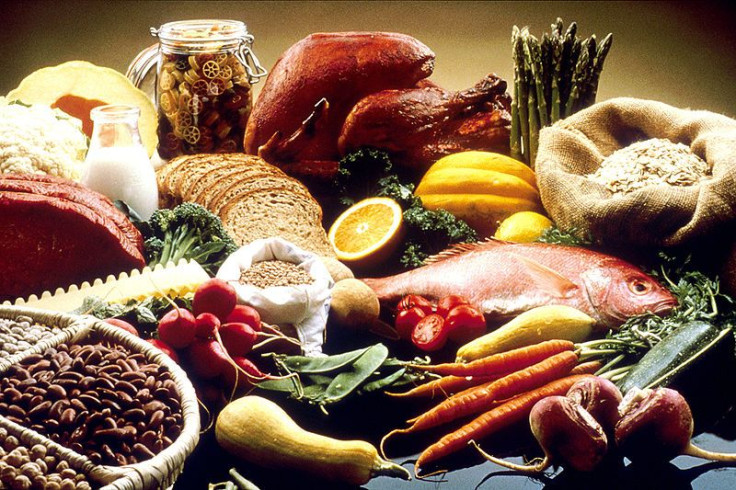Foods That Cure Sunburn: What You Should Eat After a Day At The Beach

After a long day at the beach, you may feel rejuvenated and replenished, or burnt and red. If you feel extra warmth radiating from your body, you can shorten recovery time from a sunburn by adding some healing food to your diet.
Ultraviolet (UV) radiation from the sun can damage skin, which is visible as redness and swelling, and felt as pain. Blood flow increases to the exposed area as the synthesis of darkening proteins and enzymes is initiated.
The American Melanoma Foundation (AMF) reports five or more sunburns during a person's lifetime doubles the risk of developing skin cancer. With 80 percent of lifetime sun exposure occurring during childhood, take extra precautions to prevent sunburn in your children.
The body's ability to produce melanin — the color pigment of the skin — reaches its capacity when sun exposure becomes too intense for the body to handle. A light-skinned person could experience sunburn in less than 15 minutes of sun exposure, whereas a dark-skinned person may tolerate the same exposure for hours, according to the National Institutes of Health (NIH). However, people of all shades of skin should take precautions to regulate sun exposure. The Food and Drug Administration's (FDA) recommended amount of sunscreen application is 2 mg/cm2.
Whether you skimped out on the sunscreen or stayed too long underneath the sun's UV rays, the right foods in your diet can offer you protection from sunburn.
The five foods listed below attack the free radicals in the body, reducing inflammation and protecting you from sunburns that can be lead to pre-cancerous skin alterations.
1. Almonds
Almonds are rich in vitamin E, an antioxidant that protects the skin from sunlight and allows for fiber, omega-6 and omega-9 fatty acids to build, according to Mayo Clinic. Almond oil and almond milk are popular protectants against damage from UV rays that help keep your skin smooth and soft.
2. Green Tea
Green tea is rich polyphenols, antioxidants that reduce inflammation and reactive sloughing skin cells, says the American Journal of Clinical Nutrition (AJCN). Drinking green tea has the potential to alleviate the damage brought on by sunburns and excessive exposure to UV rays. In a study conducted at the University of Maryland Medical Center, researchers found that the primary polyphenol in the drink is epigallocatechin gallate (EGCG) — which has anti-cancer properties that can help prevent the development and growth of skin tumors.
3. Salmon
Salmon is rich in omega-3 fatty acids, the healthy fats that give your skin a glow, the American Heart Association says. These fatty acids will keep your skin moisturized and looking radiant. In a study published in the Oxford Journals, researchers found that fish oils protected against sunburn and alterations in DNA resulting from excessive sun exposure.
4. Tomatoes
Tomatoes are rich and abundant in lycopene, an antioxidant that reduces the inflammatory response to UV damage by neutralizing the dangerous molecules produced from excessive sun exposure, according to Mayo Clinic. Processed tomatoes used in ketchup, soup, and juice contain the highest levels of lycopene.
5. Carrots
Carrots are rich in beta-Carotene, a powerful antioxidant that helps maintain healthy skin and prevents many diseases. Beta-carotene acts against the age-accelerating free radicals so that skin remains healthy. This antioxidant will help protect your skin from excessive UV radiation and sunburn. If consumed regularly, carrots can increase protection from sun damage. But don't skimp out on sunscreen because you ate a lot of carrots. Think of them as an added UV shield to your skin.



























